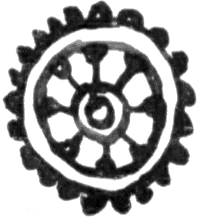- Learn the imperative of the present system and practice with the exercises below.
- Learn how to inflect nominal stems (nouns and adjectives) that end in s and other unchanging consonant-stems, as well as “radical” stems that end in ī and ū.
- Learn how to recognize, form, and understand governing compounds (upapada-tatpuruṣa compounds).
The imperative
s-stem nouns and adjectives
Other consonant- (and vowel-) stem nouns and adjectives
Adhyayanavidhiḥ: see stems ending in t and d and stems ending in palatals
Governing compounds (upapadatatpuruṣaḥ)
This vocabulary list is also available as a Quizlet set.
1. Imperatives
Translate each sentence in the singular, dual, and plural.
- Bring the book.
- Eat.
- Leave it.
- Take it.
- Teach.
- Listen.
- Study.
- Speak.
- Try.
- Cook.
- Come.
- Stay.
- Be.
- Do.
- Place.
Translate these third-person verbs in the singular, dual, and plural.
- Let him/her/them protect us.
- Let him/her/them study.
- Let him/her/them give.
- Let him/her/them listen.
- Let him/her/them wait.
- Let him/her/them enjoy.
- Let him/her/them do.
- Let him/her/them burn.
- Let him/her/them obtain.
- Let him/her/them sell.
2. Nouns
Give the requested forms of the following noun phrases. Use s-stem nouns where possible.
- A long life (nom.)
- Hearts and minds (nom.)
- With this ghee (instr.)
- May you be long-lived (nom.).
- A good-hearted man (acc.)
- When the mind is calm (prasanna-) (loc. abs.)
- When the ghee blazes (loc. abs.)
- Of a good heart (gen.)
- In the clear waters (loc.)
- With the waters (instr.) of the river
- Of the minds (gen.) of the priests (gen.)
- In a single mind (loc.)
3. Sanskrit-to-English
Note: some of these sentences use upapada-tatpuruṣaḥ compounds. You should be able to recognize them based on the vocabulary you’ve already had and the examples we’ve gone over in class.
- rājñō yajña r̥tvijaḥ sumanōbhyō dēvēbhyaḥ sarpiṣā yajantu
- na śaknōmīti yūnōktē punar yatasvēti guruṇōktam
- yadā kaścit kṣauti tadā dīrghāyur ēdhīti brūṣva
- Note: √kṣu is an irregular 2nd-class verb that means “sneeze” (which irregularly takes vr̥ddhi rather than guṇa in the strong forms).
- Another option: ... tadā dīrghāyur astv iti brūṣva
- kō bhavatyā manasy astīti pr̥cchatīṣv anyāsv arōdīt strī
- vēdāṅgāny adhīṣvēti cētasi guruvacanaṁ smr̥tvā hr̥dayasthāny aṅgāny akurvata śiṣyāḥ
- sahasraśākhaṁ vēdam adhītya cētasi rakṣantu taṁ aṅgavidō brāhmaṇāḥ
- yā pustakasthā vidyā naiva sā vidyā buddhimantō buddhisthaiva vidyēti manyantē
- tasmāddhētōḥ śiṣyāḥ pustakāni kṣiptvā manasa ēva paṭhata
- brūhi sarvajña gurō kiyad āyur asti mamēti
- diśaṁ paśyēti mama suhr̥dōktē tasyāṁ diśi kiñcid āgacchad dr̥ṣṭvā bhētum ārabhē
- Hitōpadēśaḥ 1.93 (s-stems)
- Kuvalayānandaḥ 123 (s-stems)
- Abhijñānaśakuntam 5.4 (s-stems)
- Kāvyādarśaḥ 2.135 (imperatives)
- Nītisāraḥ 2 (imperatives)


